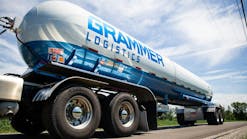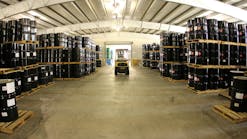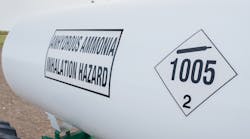Canada is studying ways to improve safety in dangerous-goods transportation.
The Canadian government recently allocated $3.6 million for 23 new research projects involving the transportation of dangerous goods, according to Marc Garneau, the country’s minister of transport.
The projects will be implemented from 2020 to 2023.
“The safe transportation of dangerous goods doesn’t just happen,” Garneau said. “It’s underpinned by extensive research and testing to ensure everything is being moved safely. To keep Canadians safe, we must continue to address knowledge gaps that exist, and the projects being announced (now) do just this.
“The results of these research projects will help us develop new initiatives and enhance existing ones to further improve the safety of our transportation system and the safety of Canadians.”
Funding for the projects was provided to Transport Canada from court settlements paid largely by Irving Oil related to the Lac-Mégantic disaster.
The projects were selected from more than 120 ideas resulting from the 2019 Transportation of Dangerous Goods Research Symposium, which brought together more than 200 dangerous-goods transport partners, including emergency responders, industry representatives, academia, and experts on the transportation of dangerous goods. The selected projects cover topics such as tools for emergency response, dangerous-goods containers, lithium batteries and other energy storage systems, risk assessment and analysis, and other emerging issues.
In 2020-21, Transport Canada will initiate six of these research projects and allocate an estimated $900,000 in funding towards them. The six projects slated to move forward in the next year include:
- Validation of recommended emergency actions for liquefied natural gas in the Emergency Response Guidebook
- Comprehensive review of the criteria and thresholds for emergency response assistance plans in the Transportation of Dangerous Goods Regulations
- Evaluation of any risks resulting from hydrogen being transported to hydrogen-vehicle fueling stations
- Hazard assessment of energy storage systems being transported in enclosed vessels for marine transport
- Development of a geographic risk assessment methodology for moving dangerous goods by road
- Development of a smart package for lithium battery transportation that indicates warnings about issues inside the package










